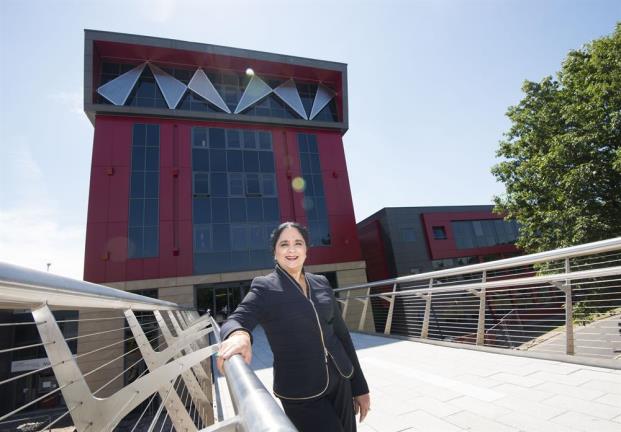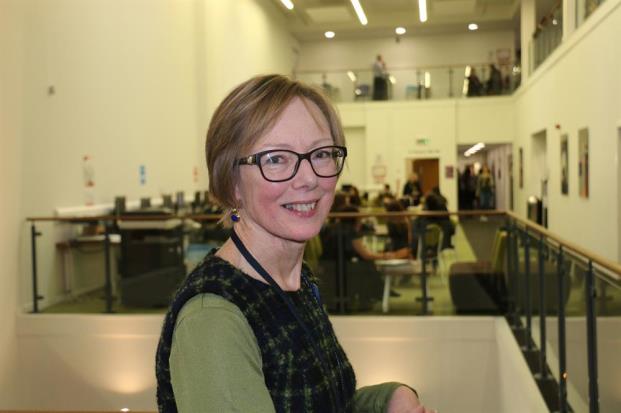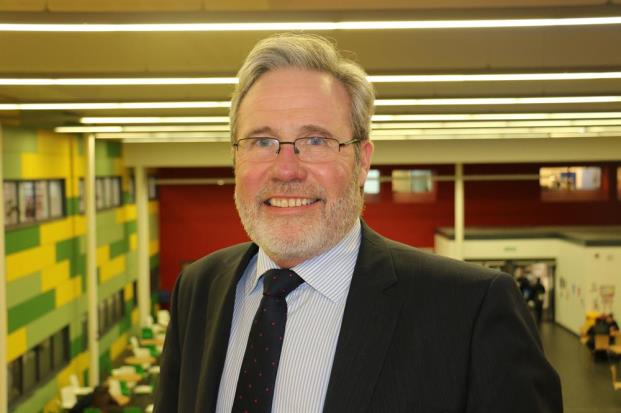Posted: 23/03/16
College seeks people “with desire to make a difference”
People who believe passionately in further education’s power to transform lives are being invited to shape the direction of a £58 million organisation.
-

Principal and chief executive Dame Asha Khemka said this was a chance to join the governing body at an "exciting" time in college's history
-

"Great to be part of a dynamic organisation" - Diana Meale
-

"College is a huge part in changing lives" - Tim Clarke
West Nottinghamshire College is seeking to strengthen its governing body with an injection of new talent – and is calling for people with “the desire to make a difference”.
The college currently has vacancies on its corporation board – the body responsible for setting its strategic direction, overseeing its financial health and ensuring high-quality provision.
According to principal and chief executive Dame Asha Khemka, it represents the “perfect opportunity” for those who want to see Mansfield and Ashfield “prosper through skills”.
Dame Asha said: “We’ve been on an incredible journey over the last ten years to become one of the largest and best-performing colleges in the country.
“While this is testament to our hard-working staff, it wouldn’t be possible without such experienced, passionate and committed governors, who’ve set a bold and ambitious strategy that is rooted in helping our students succeed and achieve their aspirations.
“This is a chance to join our governing body at a truly exciting point in our history and ensure the college leads the skills agenda for generations to come.”
The corporation board comprises of people from a range of backgrounds and professional sectors, reflecting the communities served by the college, which has 1,000 staff and more than 34,000 students across the country, including 7,500 who study locally.
It is made up of Dame Asha, staff and student representatives, and people drawn from local businesses, public bodies, community groups and educational establishments, who work closely with the college leadership team to oversee its management and set its future direction.
They are particularly keen to hear from people with experience of data analysis – preferably in an educational setting – along with current or former human resources professionals. It especially welcomes applications from women, to ensure greater female representation on the board.
The governing body is also inviting people to join any of its sub-committees that scrutinise and inform the work of the college, which is due to complete a £50million rebuilding programme later this year.
The audit committee advises on systems of internal control, risk management and governance, while its finance, resources and estates counterpart monitors the college’s financial position and annual budget. The standards committee monitors educational standards, quality of provision and overall performance.
Board meetings are held on a monthly basis while sub-committees meet up to five times per year. There are also regular ‘development’ sessions which governors are expected to attend.
Although the role is voluntary, governors and sub-committee members receive full training including an induction programme to gain an overview of the college and the further education sector, plus one-to-one mentoring and support.
Chair of governors, Nevil Croston, said: “You don’t necessarily have to be the most senior person in your organisation; you could be an ambitious middle-manager who wants to gain new skills and experience.
“Above all, we’re seeking those who are passionate about the power of further education to transform lives and who have the desire to really make a difference to our communities.
“Being a governor is challenging but hugely rewarding. This is an opportunity to shape provision that benefits the local community, employers and students directly.”
Anyone interested in becoming a governor or joining a sub-committee should contact clerk to the board, Maxine Bagshaw, on 07912 218771 or email maxine.bagshaw@wnc.ac.uk
For further infomation click here
We hear from two of our governors about what the role means to them...
“Great to be part of a dynamic organisation”
Nottinghamshire County Councillor Diana Meale joined the board in 2008 while working as executive director of regeneration at the former East Midlands Development Agency (EMDA).
The councillor for Mansfield West said: “I felt I had a genuine contribution to make. I had a good understanding of skills but wanted to know what was happening ‘on the ground’; in particular the issues facing young people and employers.
“So there were things I wanted to get out of it, too.”
Mrs Meale, who also sits on the standards committee, described the role as “bringing a different perspective.”
She said the college plays an “absolutely critical role” in Mansfield’s and Ashfield’s economic prosperity, adding: “Because we’ve got that legacy of being a former mining and textiles area, people recognise it’s now up to them to take ownership of their future skills.
“The college is vital to that culture change by enabling young people and adults to gain not only the technical skills, but also the life skills, that employers want.
“It’s very much about helping us become a high-wage, high-skill economy.”
Mrs Meale said the rewards of serving as governor were “being part of a dynamic, successful organisation” and “making things happen.”
She added: “I’m proud to be part of the board that, together with the executive team, took the calculated decision to expand the college to become the £50million organisation it is today.”
“College a huge part in changing lives”
Business consultant Tim Clarke became a governor in 2002 while employed as corporate director at banking group RBS in Mansfield. He left in 2006 following a career move before later re-joining at the invitation of Dame Asha.
Mr Clarke, who works in law and accounting, also chairs the board of bksb, the college-owned online learning-provider.
Explaining his decision to get involved, he said: “It was clear there was an overwhelming passion to really develop opportunities for people in North Nottinghamshire; it struck me enormously actually.
“The relentless drive to provide the very best education for the community has only strengthened under Dame Asha.”
Mr Clarke said the main responsibilities were “working with the chief executive and leadership team to provide a clear strategic direction.”
He described its sub-committees as “crucial to the wellbeing of the college”, adding: “The strategic steer they give is particularly in-depth; working closely with department heads to ensure we’re acting within our capabilities while not over-stretching things and placing the college at risk.”
Seeing the college become “one of the truly outstanding FE institutions in the UK” was among the most satisfying achievements, said Mr Clarke.
But he insisted his greatest pride came from seeing students achieve success.
“The college plays a huge part in helping change people’s lives,” he said. “And it’s an incredible privilege to be part of that.”